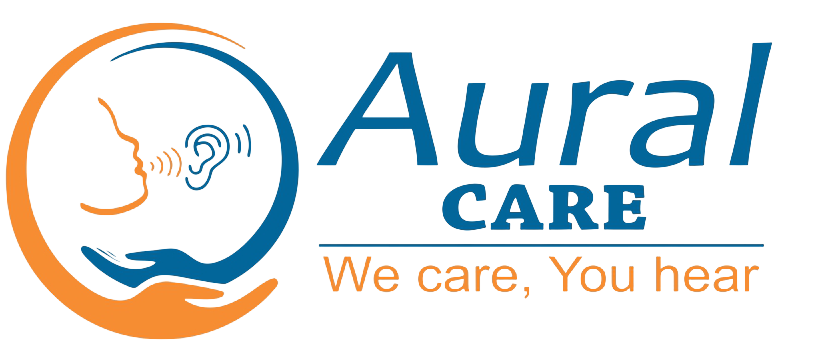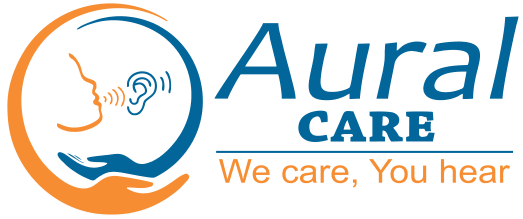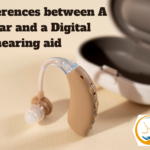You might be familiar with the words “Regular hearing aid” and “Digital hearing aid” if you or someone you care about has hearing loss. What do these phrases signify, though, in reality? In this blog, In order for you to choose the kind of device that is best for you, we will explain the differences between A Regular and a Digital hearing aid.
“Listening is not merely not talking…it means taking a vigorous human interest in what is being told to us.” – Andrew Miller
What is the difference between A Regular and a Digital hearing aid?
A Regular and a Digital hearing aid are primarily differentiated by their technological sophistication. Digital hearing aids use sophisticated processing algorithms for a more natural listening experience as opposed to traditional hearing aids, which amplify sound waves. Whatever form is chosen, both may significantly raise a person’s quality of life and emotional health.
What is a Regular Hearing Aid?
The conventional kind of hearing aid, commonly referred to as an analogue hearing aid, has been in use for many years. It is made up of a microphone, an amplifier, and a speaker, and it operates by boosting sound waves so the user can hear them louder.
Analog technology is used by conventional hearing aids to augment sound waves. Sound waves are transformed into electrical impulses as soon as they enter the microphone, which the amplifier subsequently amplifies. The speaker receives the amplified signals and transforms them back into sound waves before sending them into the user’s ear.

Pros and Cons of Regular Hearing Aids
Pros:
- The cost of analogue hearing aids is often lower.
- easy to use and keep up
- can offer efficient amplification for hearing loss ranging from mild to moderate.
Cons:
- little possibilities for customization
- can enhance voice and background noise
- To get the ideal sound quality, numerous modifications can be necessary.
Is analog really better than digital?
An analogue hearing aid cannot produce the same level of sound quality because, despite their ability to enhance certain sound frequencies, they are unable to block out unwanted noises. The cost of a digital hearing aid is more than an analogue one, but most hearing aid users find the increased cost to be worth it given the advantages of the latter.
What is a Digital Hearing Aid?
A digital hearing aid is a more current style of hearing aid that transforms sound waves into digital signals that the user may alter and personalize using digital signal processing technology.
To produce digital signals from sound waves, digital hearing aids employ DSP technology. The user can then receive a better, more realistic sound by manipulating and tailoring these signals. The user of a digital hearing aid will find it simpler to follow conversations in noisy settings because of the ability of these devices to boost speech frequencies and filter out background noise.

Pros and Cons of Digital Hearing Aids
Pros:
- more customizability than standard hearing aids
- can enhance voice frequencies and reduce background noise
- can offer efficient amplification for hearing loss of all types and severity
Cons:
- Often more costly than standard hearing aids
- maybe requiring additional upkeep and modification
- For new users, it could have a longer learning curve.
How long does a digital hearing aid last?
Three to seven years is the typical lifespan of a hearing aid; for some people, it may even be longer. The quality of the instrument’s construction, how well it is maintained, and the amount of wear and tear it endures while being worn in your ear for many hours each day are all factors that impact its longevity.
Which Type of Hearing Aid is Right for You?
Given the variety of alternatives on the market, selecting the best hearing aid may be challenging. The decision-making process can be facilitated by knowing the differences between A Regular and a Digital hearing aid. A typical hearing aid amplifies every sound equally, which occasionally produces distorted or murky sound. Contrarily, a digital hearing aid employs cutting-edge technology to selectively enhance sounds in accordance with your unique hearing needs, producing a crisper and more realistic sound quality. Making the choice to purchase a hearing aid can be difficult emotionally since it can cause uncertainty and worry. To overcome these feelings and make sure that your choice satisfies your hearing needs and enhances your overall quality of life, you should seek the advice of a hearing healthcare specialist.
Is digital louder than analog?
Analog hearing aids amplify harsh sounds excessively and quiet sounds inadequately. With the right amount of amplification, quiet, typical, and loud noises may all be clearly heard with digital hearing aids.
Factors to Consider When Choosing a Hearing Aid
It is essential to take into account variables that would guarantee the finest experience while choosing a hearing aid. While deciding between A Regular and a Digital hearing aid, one must take their level of hearing loss, design, capabilities, and price into account. Conventional hearing aids are bigger, less costly, and some people might prefer them out of sentimentality. On the other hand, digital hearing aids include cutting-edge capabilities like noise reduction, feedback suppression, and directional microphones, which may be crucial for those who spend a lot of time in noisy surroundings. Human emotions and preferences should also be taken into account in addition to these variables. While some people would favor the discretion of a digital hearing aid, others might cherish the nostalgic value of a conventional hearing aid. The ideal hearing aid is one that offers the optimum experience by taking into account the user’s needs and preferences.
“The hearing aids are very helpful for speech reading. Without the hearing aids, my voice becomes very loud, and I cannot control the quality of my voice.” – Marlee Matlin
How to Get the Most Out of Your Hearing Aid
Everyone with hearing loss should make the most of their hearing aid. Below are some suggestions to help you improve your hearing experience whether you use A Regular and a Digital hearing aid.
- Give yourself time to become used to the technology, and practice patience.
- Keep your hearing aids clean and maintained on a regular basis.
- To make sure your hearing aid settings are suitable for your unique requirements, consult with your audiologist and offer feedback.
- Accept the emotional impact of hearing loss and, if required, ask for help from family members or a therapist.
Always keep in mind that both conventional and digital hearing aids have the ability to enhance your quality of life, and with the right maintenance and attention, you can get the most out of your tool.

Is a digital hearing amplifier the same as a hearing aid?
Hearing aids are uniquely designed for you to optimize the sounds you have difficulty hearing, as contrast to hearing amplifiers, which typically boost all frequencies. Despite the fact that they might be pricey, hearing amplifiers often aren’t the best option for persons with hearing loss.
Can I use a hearing amplifier instead of a hearing aid?
Sounds are loudened using hearing amplifiers, commonly referred to as personal sound amplification equipment. Yet, the FDA does not consider them as medical devices due to a variety of restrictions. Hearing amplifiers and other products that are not FDA-regulated are not advised by audiologists for the treatment of hearing loss.
Tips for Caring for Your Hearing Aid
No matter if it’s A Regular and a Digital hearing aid, taking care of it is essential to making sure it functions well and lasts a long time.
- Regularly washing it down with a gentle, dry cloth will keep it clean.
- Keep it dry and cold, and keep it away from high or low humidity levels when storing it.
- Batteries should be changed often to avoid deterioration.
- Keep it away from water and chemicals.
- To avoid damaging it, handle it gently.
Keep in mind that your hearing aid is a valuable instrument that enables you to communicate with others around you, and that taking proper care of it will help you get the most out of it. It’s acceptable to ask for assistance and support from your audiologist or loved ones if you are feeling irritated or overburdened with maintaining your hearing aid.
Which hearing aid is best for old age?
Seniors who suffer from severe hearing loss should think about behind-the-ear, canal- or in-the-ear, and open-fit styles: Behind-the-ear(BTR). The earmold, which is specifically designed to suit the ear canal, is connected to the hearing aid’s tiny tube, which hooks over the top and lies behind the ear.
Hopefully, the above explanation of the difference between A Regular and a Digital hearing aid will help you when you choose the Best Hearing aid for you.
So, if you’re looking for a Best Hearing aid for you or Best Hearing impairment service in Kolkata, then this is right place for you, because Aural Care is the Best Hearing aid center in Kolkata.
Get more information about it, then touch with us.


